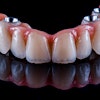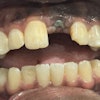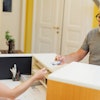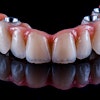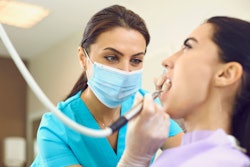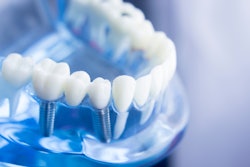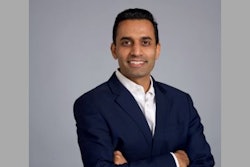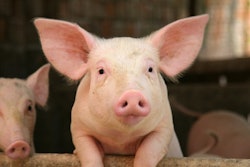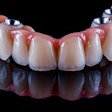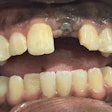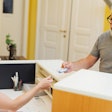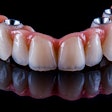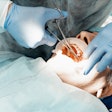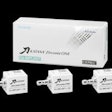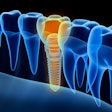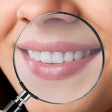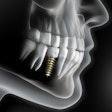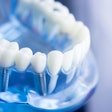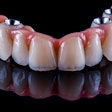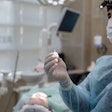Bacteria trapped in the internal cover screw chamber of dental implants during surgery may play a role in shaping the peri-implant microbiome and whether it will remain healthy, according to a press release from the West China Hospital of Sichuan University.
Targeted interventions at implant placement may steer early microbial communities toward health and prevent implant failure, according to the release dated May 20.
"Our findings challenge the idea that implants simply inherit bacteria from nearby teeth," Dr. Purnima Kumar, lead author and professor at the University of Michigan, said in the release.
In a study of 15 healthy adults, researchers tracked microbial colonization of dental implants over six time points across 12 weeks. Using whole-genome shotgun sequencing and network analysis, they uncovered a resilient, nonrandom assembly process that begins inside the implant itself.
 An illustration of the clinical study's design. Image and captions courtesy of Kumar et al. Licensed under CC BY 4.0.
An illustration of the clinical study's design. Image and captions courtesy of Kumar et al. Licensed under CC BY 4.0.
Within 24 hours, species like Streptococcus mitis and Prevotella spp. took hold and persisted, acting as microbial "hubs" that influenced which species arrived later through a pattern dubbed "nepotistic recruitment." Unlike the diverse microbiomes around natural teeth, the peri-implant community was more constrained, according to the release.
Even after crown placement temporarily disrupted the community, it rebounded to its original state. Furthermore, functional analysis revealed a shift toward anaerobic processes, though oxygen-dependent activity remained, suggesting a distinct metabolic profile. Over time, each implant’s microbiome became increasingly personalized and diverged from neighboring teeth.
Future research may enable spatial mapping and early monitoring of microbial colonization, improving implant health from the outset, according to the release.
“This insight opens new possibilities to influence early colonization in ways that support better healing and long-term implant success,” Kumar said.

